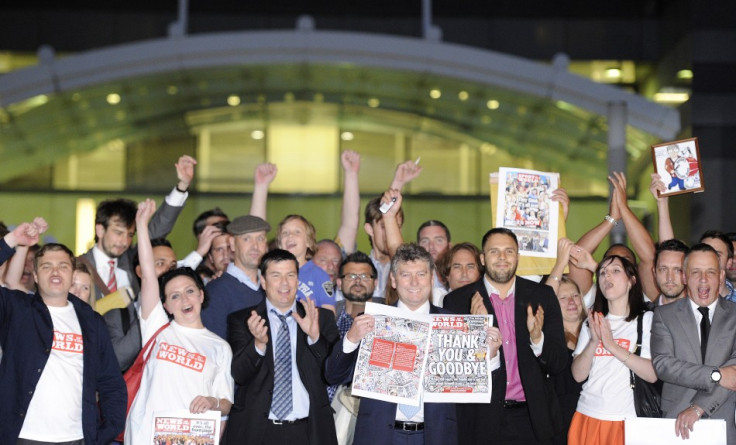Leveson Inquiry: 'Bullying' Press Stands in the Dock

The whole of the "bullying" press "stands in the dock", a lawyer for phone hacking victims told the Leveson Inquiry.
David Sherborne, who represents all 51 victims giving evidence to the Inquiry, said the whole of the press "stands in the dock", listing "charges", including "hounding", "bullying"and "illegal" activities.
Phone hacking was more an "industrial revolution" than "cottage industry", said Mr Sherborne.
He directed most of his scorn to the tabloid press, which he described as a "tawdry journalistic trade" in private information about individuals.
There were also strong words for the News International and Associated Press lawyers who have already appeared in front of Leveson, saying their calls for a "freer press" were "symptomatic of the level of complacency".
Further still Sherbourne said the "wrongs" of the press are "systemic, flagrant and deeply entrenched".
In his colourful oral evidence, Sherborne detailed some of the cases of vicitms of phone hacking, such as the family of murdered schoolgirl Milly Dowler, claiming they only give a "glimpse of a bigger picture".
The British press is "largely hellbent on survival" he added.
None of the stories that emerged from phone hacking are in the public interest or expose wrongdoing, he said, but the sole motive was to sell newspapers.
"There is and was no public interest defence."
He speculated that the number of tasks given to Glenn Mulcaire by News of the World journalists would amount to 10 stories a week - 500 a year - based on dubious or illegal activities.
Leveson had already listened to evidence from two others in the morning session of Nov. 16.
A representative of the National Union of Journalists (NUJ) told Leveson that News of the World executives had told the priavte investigator theyemployed to spy on politicians and lawyers to "become a journalist".
"Mr Webb was hired as a private detective by the News of the World and carried out surveillance for the company for many years," NUJ general secretary Michelle Stanistreet said.
"However, he alleges that, in the wake of the arrest of the paper's royal editor, Clive Goodman, he was taken aside by a senior executive on the News of the World and told he had to 'stop being a private detective and become a journalist'.
"The same executive also apparently told him he must join the NUJ and acquire an NUJ press card. This he duly did.
"For the NUJ this is a breathtakingly cynical move on behalf of the News of the World."
Guardian editor Alan Rusbridger, who also appeared, told the Inquiry that the press needed "universal principles" on the defining the public interest.
He said all media needs these principles as something "we can all agree on" and "believe in".
Having a clear set of public interest guidelines would also help them when arguing a public interest defence in court, he added.
Leveson interrupted Rusbridger to say that the press needs to "demonstrate there is a system" for public interest and ethical considerations before a story is pursued.
Rusbridger said that this would be important for a rgulator to see when mediating. He added that he favours a mediator over anystatutory regulation and that mediations should have detailed notes.
If the mediation were to break down, the notes could help if a complaint was then taken to the courts, he said, as the presscould demonstrate the efforts it made to appease the complainant.
© Copyright IBTimes 2024. All rights reserved.







